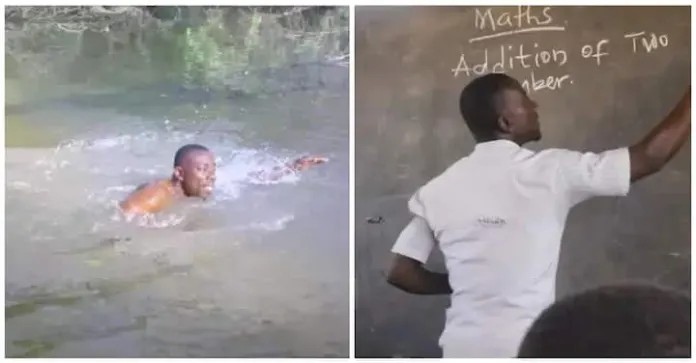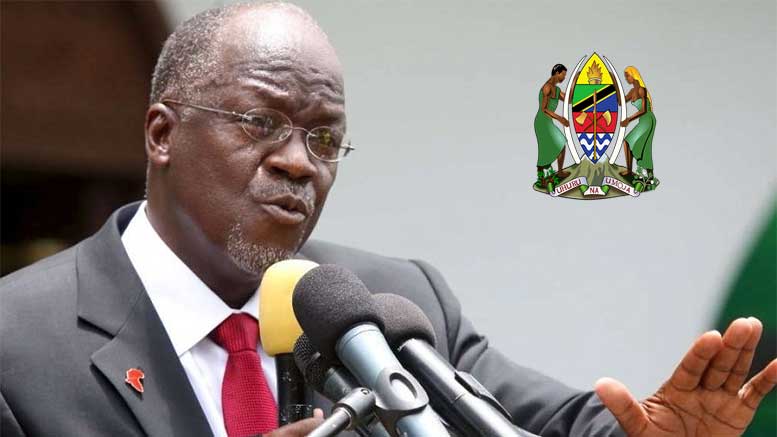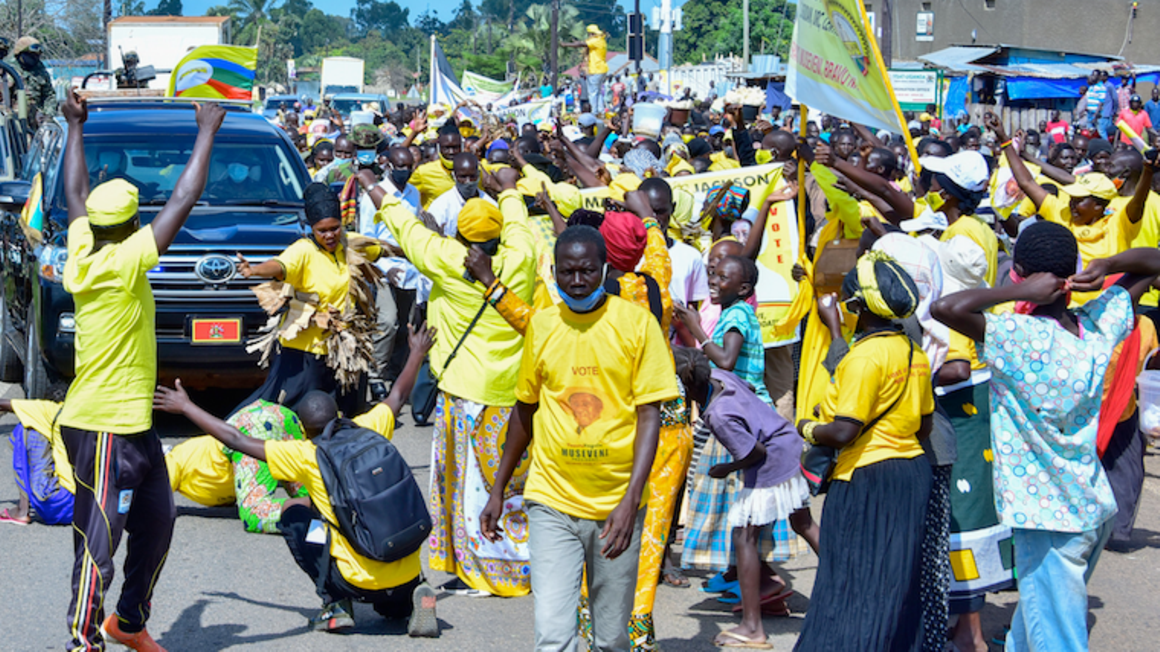Poor conditions in rural communities prevent most teachers from accepting postings to these communities.
But this is not the case for Mensah Kwame, a teacher at Lonpe MA Primary School in the Nanumba North District of the Northern Region.
Mensah Kwame is a 36-year-old teacher who is looking beyond all the glaring challenges to help rural pupils.
But as head teacher of the school, the burden is even higher.
He would have to traverse an incredibly long distance to be in school on time on his motorbike. But when this means of transport is unavailable, he may have to devise other means.
After a 9-kilometer ride offered him by a Good Samaritan who was returning from hospital with his wife, he would have to swim across the River Dakar and then continue for three more kilometers.
These challenges coupled with poor infrastructure and lack of furniture and text books makes this even more dire.


Mensah Kwame’s connection with rural schools began when he completed college in 2009 – he has since moved from one school to another – and admits teaching at Lonpe is frustrating as it is dangerous.
“Teaching in rural communities is not an easy task especially as I have to swim across this river everyday to get to my school. My family is very worried,” he said.
“The pupils are at a huge disadvantage because I have to teach all the classes from Basic One to Six and this is stressful.”
Education watchers have maintained the uneven distribution of resources between the urban and rural areas – and the ultimate outcomes require a review.
Executive Director of Africa Education Watch Ghana, Kofi Asare, has been doing a lot of work in this regard.
He believes the time is now to demand concrete action on rural education if something is to change.
A recent survey conducted by his organization revealed more than 42,000 teachers left the profession in 2021.
Data from Social Education Research also indicates that at least 10,000 teachers leave the classroom every year to seek other job opportunities.
The situation continues to impact the teacher and the learner especially in the rural communities.




